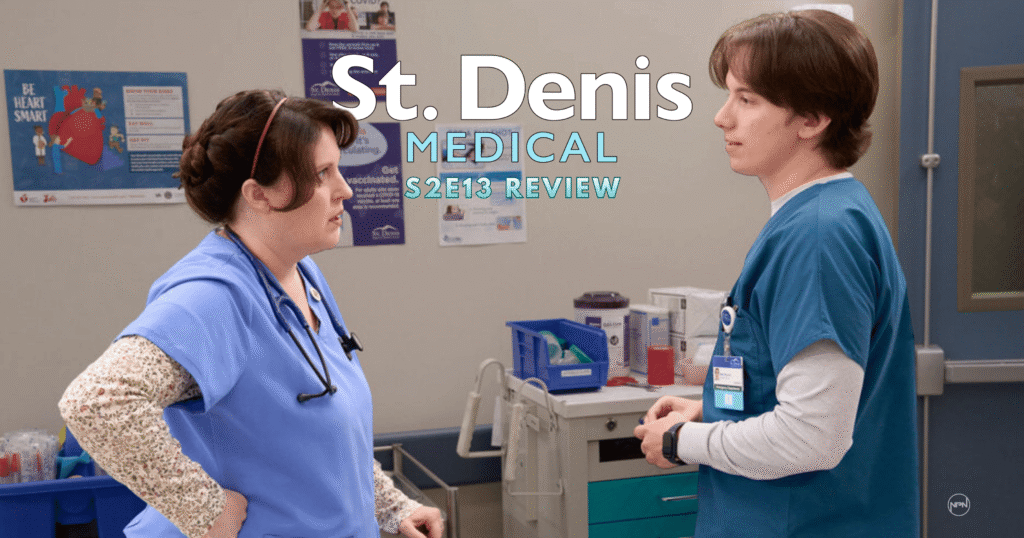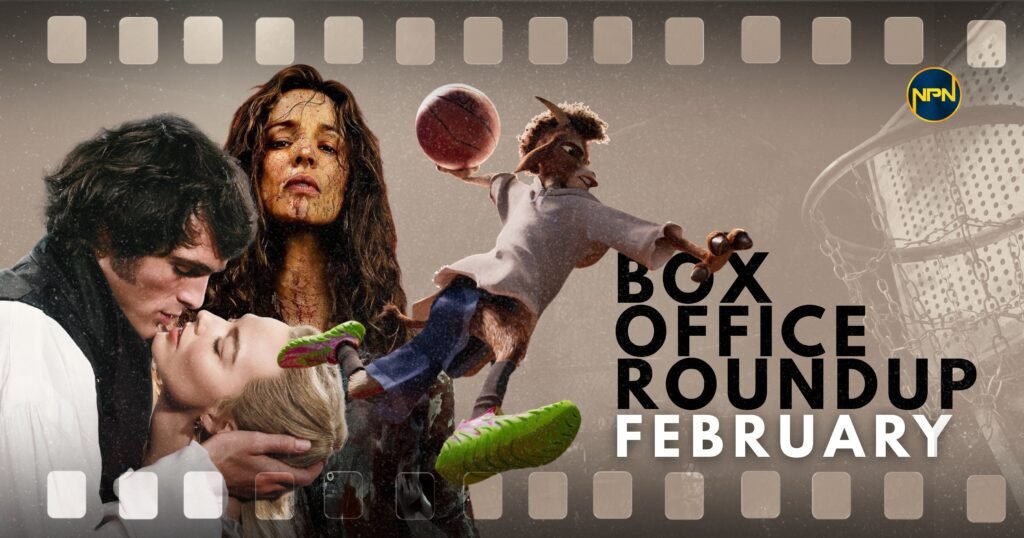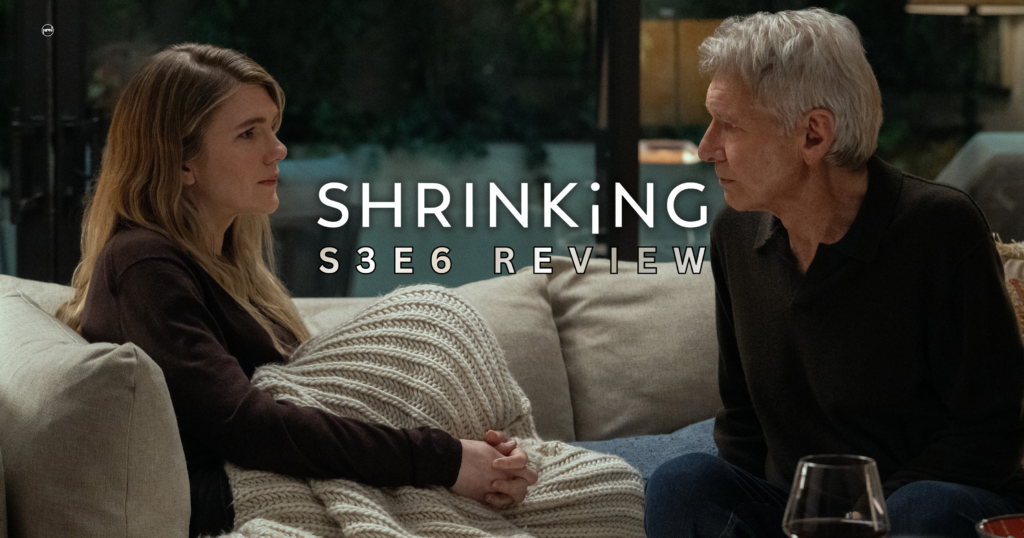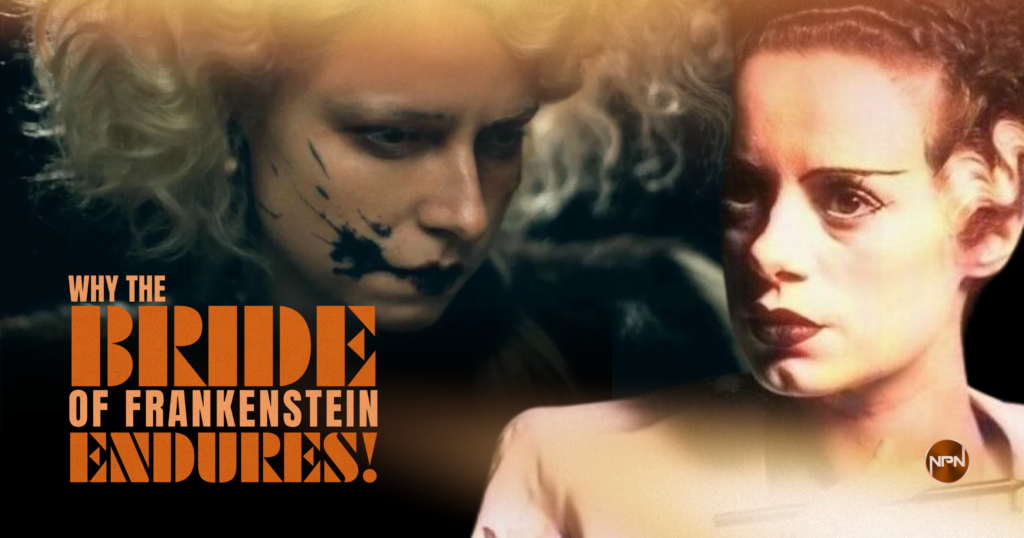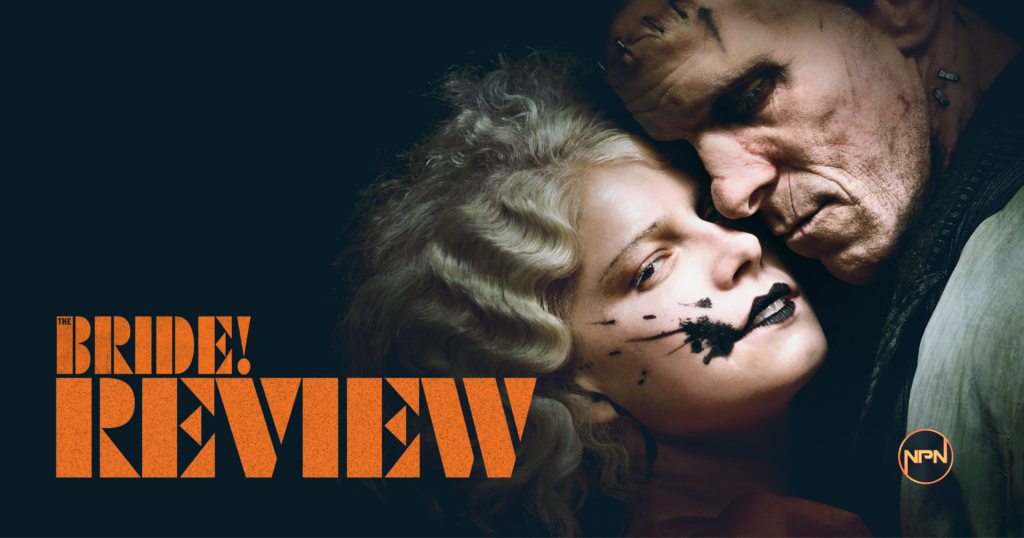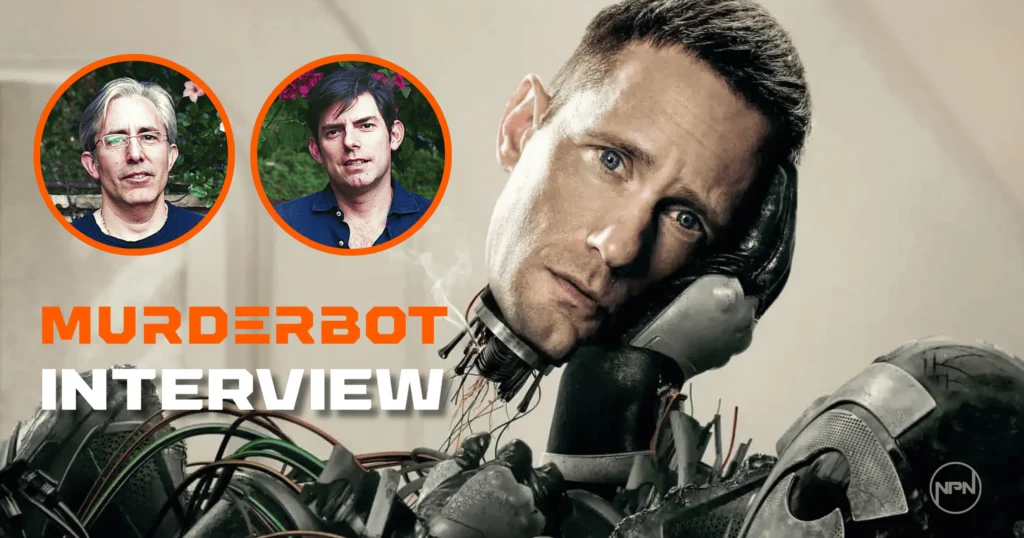
Apple TV+ has recently premiered its new sci-fi series Murderbot, an adaptation of Martha Wells’ bestselling, Hugo and Nebula Award-winning The Murderbot Diaries. The series centers on its titular character — a socially awkward, endearingly antisocial security android who hates humans and loves binge-watching TV series.
The project was brought to life by brothers Chris and Paul Weitz, who adapted the novels after becoming avid fans of the series. Nexus Point News sat down with the Weitz brothers to explore how Murderbot made the leap from page to screen, the creative challenges they faced, their inspirations, and what audiences can expect from future seasons.
REVIEW: Murderbot Season One – The Story Of A Delightfully Misanthropic Robot
Demet: How did your journey of adapting The Murderbot Diaries begin?
Paul: We both loved the book. We have a company together, but we hadn’t worked together writing and directing for over 20 years. Basically we both loved it and felt like it would be something really interesting to adapt, and we loved it equally, so we said, “OK, let’s do this together!”
Were there any challenges along the way?
Paul: Yeah… (Laughs)
Chris: I mean, yeah, making a TV show is sort of nothing. There’s a lot of great stuff, a lot of challenges, but part of it is designing and building a world in which you have to do absolutely everything from the ground up. You can’t just have a chair, it’s got to be a chair in the future. Everything gets redesigned or adapted. Our production designer Sue Chan did an amazing job in conceiving the way that this world was going to be put together, and our visual effects team… You have to figure out how you’re going to do this alien planet — all the locations on it and what methods you’re going to bring to bear on it. For instance, we decided to shoot a lot of stuff on location, which meant finding the right locations in Canada — slag heaps, gravel quarries, mountain sides. So yeah, there’s a lot of tricky stuff.
Paul: One challenge is you want to make really sure when you love something, when you love a piece of literature, that the author is going to be happy with what you do. Basically the novel is pretty short, so we weren’t cutting anything out of it, but we were adding things sometimes. We would call Martha Wells up and run things by her and sometimes she would give us ideas, she’d be like, “I don’t think it’s such a good idea, but why don’t you try this?” So that was something tricky, but a lot less so because Martha was very generous with her time.
Were there any specific inspirations from sci-fi, comedy, or otherwise that helped shape your take on Murderbot?
Chris: The inspiration… There’s so much good science fiction, right? So in part, you want to avoid copying anything that’s out there. If there were inspirations from science fiction, to me it’s always been the paperback covers of books in the 1980s. When I was a kid, that all seemed really exciting and they have these very, very big concepts to them. For instance, rather than a lot of science fiction that’s come out lately, which is very grim, and dark, and oily. Paul sometimes quotes Voltaire’s Candide, which was kind of science fiction at the time, or fantasy/science fiction. I think Stanisław Lem, the Polish author, was also an inspiration in terms of how we remembered how science fiction can be funny without being parody or broad.
Paul: Funny and slightly crappy, like the world is slightly crappy. Not everything is perfectly made or manufactured in Stanisław Lem’s novels. In addition to sci-fi, personally, I was thinking of movies like The Graduate, or a little bit like the Peanuts comics. In The Graduate, it’s a character who is kind of becoming something without necessarily wanting to and is looking out at the world, which is clearly stupid, and trying to differentiate like, “OK, I want to be in the world, but how do I do it without becoming stupid myself?” And then the Peanuts characters because The PreservationAux group is so colorful, and each of them is so themselves that it reminded me of the Peanuts comics a little bit.
You clearly love the sci-fi genre, but you also aren’t afraid to poke fun at it in Murderbot. Were there any specific sci-fi archetypes or tropes that you knew you wanted to challenge or play with?
Chris: I think we’re actually not really making fun of anything except our own creative impulses sometimes because a lot of the ideas and dialogue is just stuff that naturally occurs, at least to me, right? And so, it’s more about how over the top things are sometimes. Obviously there’s a bit of Star Trek in Sanctuary Moon within the, within the show within the show. The characters, even our like our main team, we don’t really quite know what they do because in the future everyone is doing these incredibly advanced technological things that nobody understands. I think that we are sort of enjoying some of these tropes without necessarily saying that they’re bad.
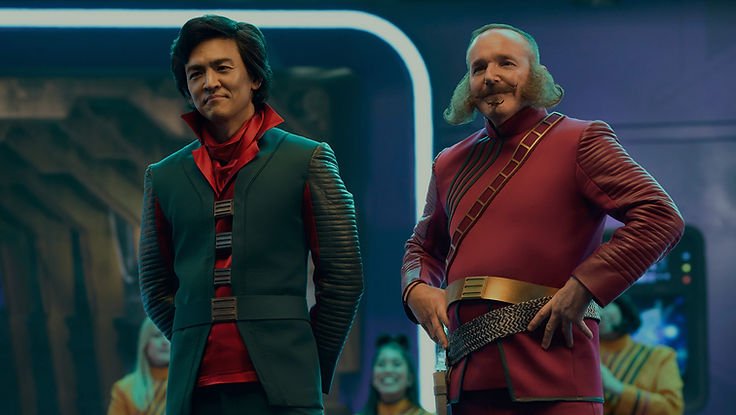
As a sci-fi lover, this show is just perfect. I am a comedy person and sci-fi person… You mixed it together and served it, and it was beautiful.
Chris: Thank you! Thank you!
Paul: What’s the name of the robot character in Hitchhiker’s Guide to the Galaxy that’s sort of depressed?
Chris: Isn’t it Marvin?
Paul: Is it? I can’t remember, but that’s a character who I loved in that book. This is less of a parody than that series.
Voiceover plays such a central role in telling this story. How did you decide how much to rely on it and how much to let Alexander’s physical performance do the heavy lifting?
Chris: Well, it’s just a constant kind of adjustment throughout the production and post-production process. I think that the voiceover was so important because the inner monologue of Murderbot is one of the great things about the books. That being said, once you’ve got Alexander’s performance, not everything really needs to be explained. It’s not as described as it is in the books, but you’ve got months to try to figure that out. Fortunately, Alexander could come back and re-record voiceover whenever we needed him to.
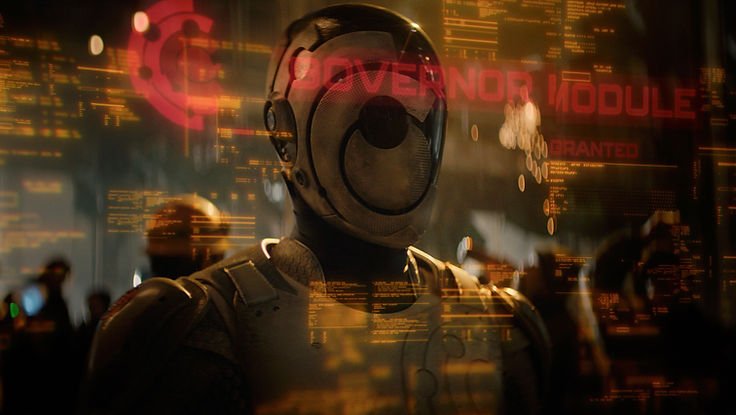
So you write and direct together, which is a very collaborative process. Do you ever run into creative disagreements and when that happens, how do you usually work through it?
Paul: Well, whoever cares more about it wins and the other one goes off and pouts for a while, tries to hide it from the first person. (Laughs) Then eventually, often we can’t remember whose idea was what. I think the game within the game here for us was a little bit like it’s not just that we made movies together when we were younger, but we’re also brothers. So it’s not a viable outcome to have one of us really pissed off at the end of the process. We love each other and we also really respect each other’s creativity. I can get too intense sometimes, like very, very intense, but Chris learned to just brush it off… It was a good experience.
Looking ahead, are you planning to adapt one novella per season if it continues?
Paul: We don’t want to jinx it. We’re a long distance between getting to do this and then getting to do another season even. We would talk with Martha Wells, we might end up using shuffling the deck a little bit, using some stuff from, say the 3rd or 4th book with stuff from the second book, but we don’t know yet.
Chris: I think the second book for people who are familiar with the series doesn’t really have the same team members, and I think it would be sad if we didn’t have some element of that. It’s not likely to be a book for book. It was just a really good thing to have the first book. The ending of the first book meant a lot to us, so that felt like the ending of our first series if we get a second series.
Paul: There are great new characters introduced in subsequent books like ART, and there’s terrific characters who are added to it.
Murderbot is now streaming on Apple TV+.
This interview has been edited for clarity.
